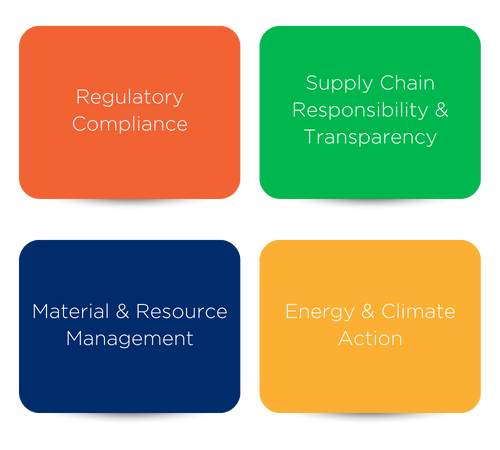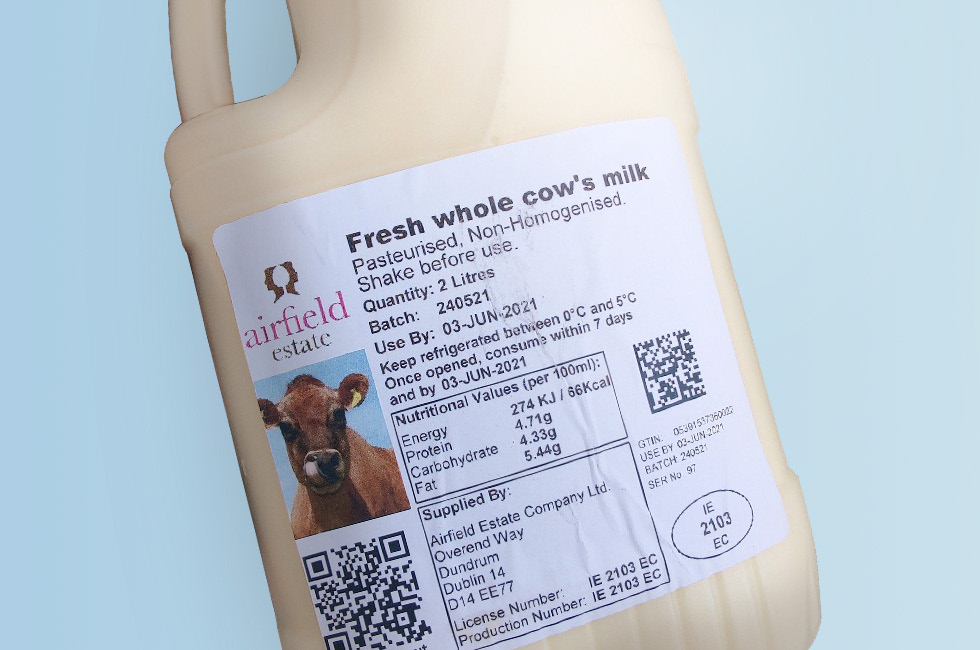GS1 Sustainability
Sustainability continues to dominate corporate agendas and GS1 is increasingly recognised as a key enabler for companies striving to achieve thier sustainability goals.
GS1 Sustainability Programme
The urgency for sustainability action for both companies and society has never been greater. Today, GS1’s core sectors are leading a global movement towards sustainable practices.
The GS1 Sustainability Programme has been established to support members on this journey, as sustainability evolves from isolated voluntary efforts to an integrated, data-driven focus within core operations

Paving the way for sustainablity in global value chains
Leveraging GS1's global standards and data services that have been built by industry, GS1 has identified key sustainability priorities. Through collaboration with industry stakeholders and expert analysis, GS1 has identified four strategic sustainability focus areas.
Aligning GS1's core strengths with member needs

Regulatory Compliance
As sustainability regional and local regulations evolve, businesses are challenged to adjust their business processes to comply. GS1 aims to provide tools and templates to help its members navigate this landscape, ensure compliance and work towards harmonised sustainability data.

Supply Chain Responsibility & Transparency
Increasingly, companies need to track and trace products across their entire lifecycle. GS1’s standards can enhance product traceability, digital exchange and validation of certifications, helping to ensure transparency across the value chain.

Material & Resource Management
Circular economy principles are becoming more prevalent, necessitating effective material and resource tracking. GS1 supports circularity by facilitating the tracking of products and packaging which can optimise waste management and enable take-back programmes.

Energy & Climate Action
As the demand to reduce emissions intensifies, companies are expected to report their carbon footprint and transition for cleaner energy. GS1 can help industry to link emission data to globally unique product, location and company identity.
Airfield Estate: Using GS1 Standards to improve traceability, reduce waste and increase consumer trust.
Food waste, sustainable production and traceability are all identified concerns of customers locally and nationally.
Airfield recognised an opportunity to respond to those consumer demands for greater transparency through the provision of easily accessible information about the origin and production of their unique Jersey cow milk.
To illustrate the journey of a food product, Airfield Estate introduced a QR code and a GS1 DataMatrix barcode on its milk bottle labels. Through the use of GS1 data standards, combined with the fTRACE traceability platform, Airfield can provide batch-specific traceability information to their customers in real-time.
